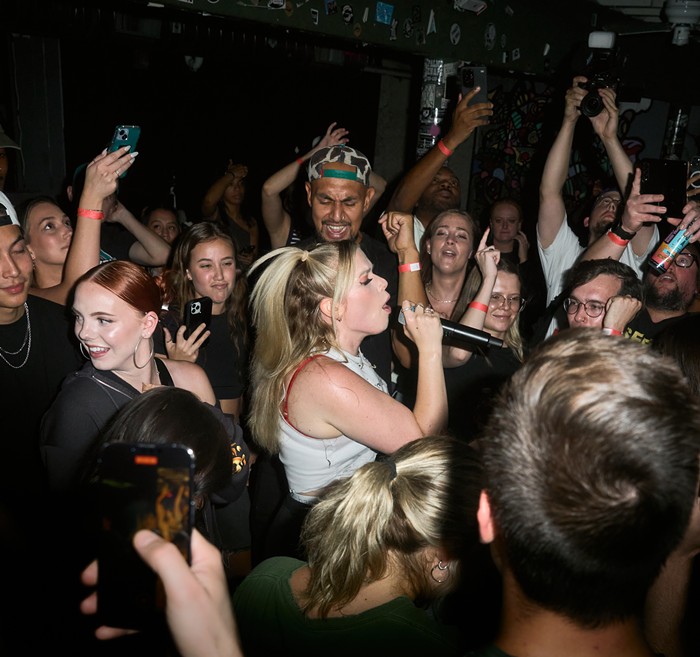It begins with a descending scale, one note calmly after another, before the guitar introduces the melody. "Dirty old river, must you keep rolling, flowing into the night?" A lonely man acknowledges the humdrum of his workaday existence, but it's transcended by a seemingly mundane event; dusk at the train station, watching thousands of people scurry home and put their working day behind them.
It's the Kinks' "Waterloo Sunset," and it's that most elusive of species: the perfect pop song. This rare breed marries melody, performance, and production so inextricably that the end result is indelibly joyful and remarkably simple sounding. A pop song can express more emotions in three minutes than any other single art form; it contains the human experience boiled down to its root essence, tightly compacted and fearsomely potent. There's plenty of good pop music out there (too much, perhaps), but there's a very small amount of perfect pop songs—and Raymond Douglas Davies is responsible for about 40 of them.
Let's face it: The man is a living legend—the chief songwriter behind the Kinks, simultaneously one of the biggest bands of all time and one of the most underrated. After Ray's brother Dave shoved a knitting needle into his amplifier to get the snarling, distorted guitar sound heard round the world in "You Really Got Me," the Kinks quickly became the also-rans of the British Invasion. Their record sales dropped off, their managers embezzled the money, they were banned from touring the States, and all the while the Davies brothers bickered and squabbled, often coming to blows onstage. Throughout this, Ray Davies penned some of the finest songs ever written—"Dedicated Follower of Fashion," "Days," "Victoria"—while the rest of the world had their ears tuned elsewhere.
Success cropped its head up here and there: "Lola" was a hit in 1970, and the band played arenas and scored the occasional hit single ("Come Dancing") through the late '70s and early '80s. But it took years for the best of Davies' songs to get the audience they deserved. 1968's The Village Green Preservation Society is commonly regarded as the Kinks' masterwork (although my heart personally lies with Face to Face), but it was essentially ignored upon release. Its rediscovery by subsequent generations of music lovers paved the way for today's indie-pop landscape, with virtually everyone—the Shins, Belle and Sebastian, Spoon, Damon Albarn, and on and on—being inspired by its twee song-stories.
Ray Davies is still at it. This year's Working Man's Café is a far cry from Village Green, but it's light years better than anything contemporaries like Paul McCartney or Eric Clapton have released in the last 30 years. Davies' second album after being shot in the leg by a purse-snatcher in New Orleans, it sees him in an understandably reflective mood, such as in the title track, which hints at a desire to patch things up with brother Dave: "There's got to be a place for us to meet, I'll call you when I've found it/I only hope that life has made us a little more grounded/Hey man, I see you now."
If neither of them are quite ready for a Kinks reunion, Friday's acoustic performance will at least give us a chance to see in person the man responsible for "Autumn Almanac"—anyone who is even remotely serious about music won't want to miss it.



















